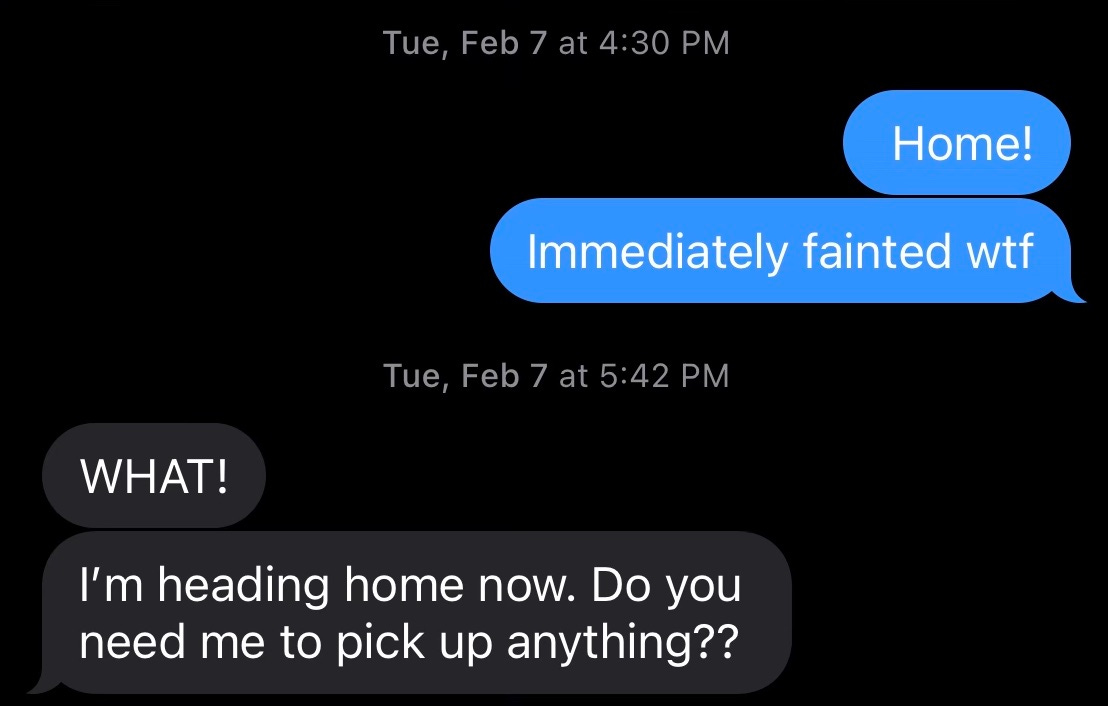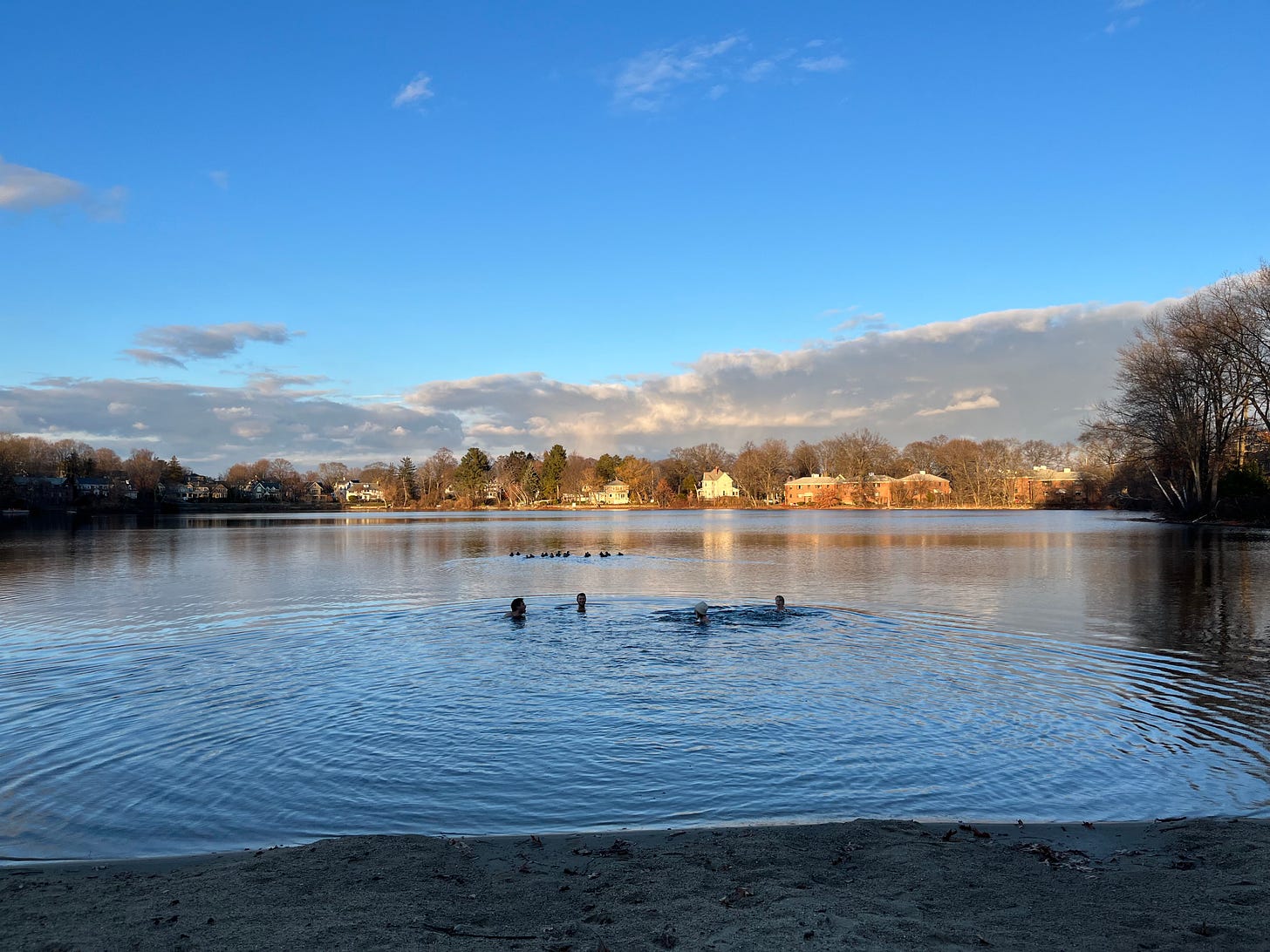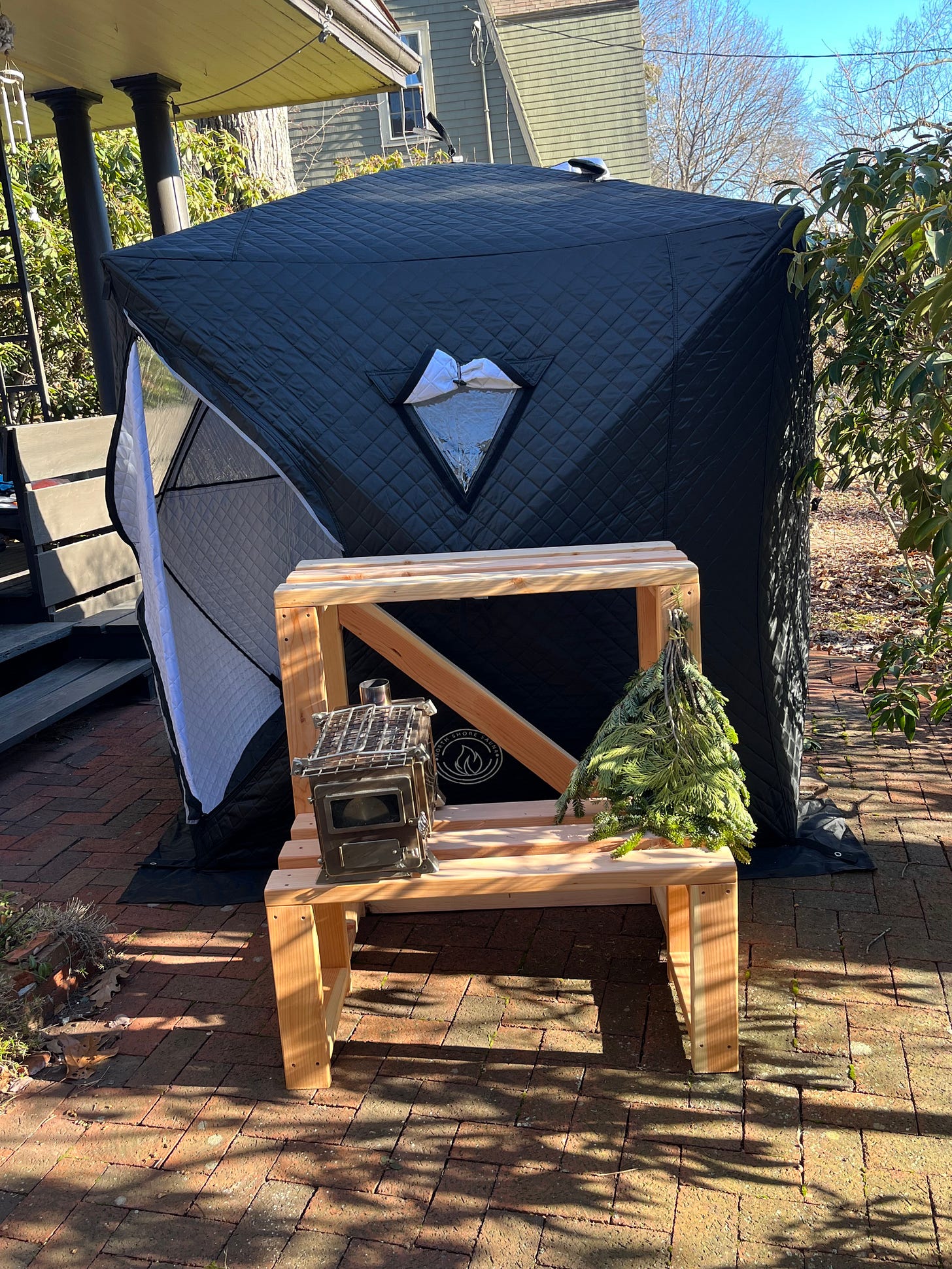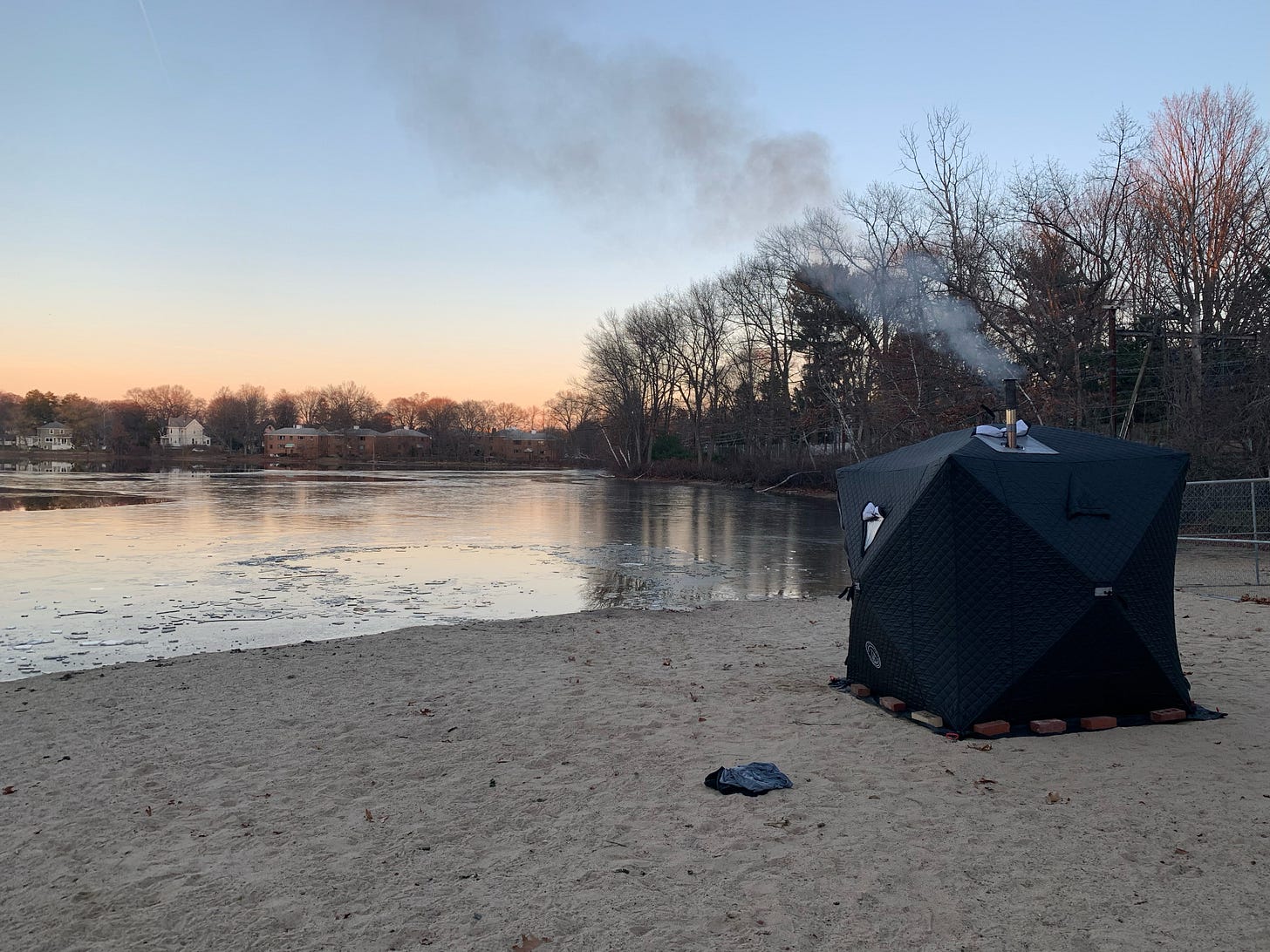The final hour is perhaps the most dangerous phase of a round-trip spaceflight.
In the case of NASA’s retired Space Shuttle program, the spacecraft would begin its descent from low Earth orbit and graze the tenuous outer atmosphere at a blazing 17,000 mph, colliding with air molecules at such velocity that the frictional drag would heat the underside of the craft to 3000 °F. There’s no margin for error in this maneuver: a few damaged heat-resistant tiles on the underbelly of the Space Shuttle Columbia caused it to burn up on reentry almost exactly 20 years ago, on a February morning in 2003. As a space-obsessed adolescent, the Columbia disaster left an impression on me. I still remember what I was doing (morning post office errand with mom) when the TV news started to show video of the unfolding catastrophe. In the footage, one fireball in the sky multiplies into a swarm of meteors streaming earthward; pieces of the disintegrating vehicle fell to the ground in a debris trail stretching from West Texas to Louisiana.
I don’t mean to trivialize a tragedy, but my return to Newton has called to mind the final voyage of the Columbia. When I first got home, I lost consciousness within five minutes of entering the house (I’ll explain). My personal debris trail — the e-bike and 75+ pounds of gear that I had hauled all the way across the country — is still mostly strewn about on the ground in the garage, on the porch, on various floors and closets where I dropped it a little over a week ago. A few days after getting back, I organized an event that was broken up by eight firefighters and seven cops, who showed up with two firetrucks, an ambulance, and at least three police cruisers (again, I’ll explain). Two days after that, I tested positive for COVID. In my comfortable and privileged life, this qualifies as a disastrous run of events. But don’t worry — I’m in surprisingly good spirits.
I had originally planned for this post to be a retrospective on my Amtrak/e-bike trip, but I think it makes sense to save the reflections for a future post. If the quality has suffered, it’s because of the brain fog from COVID.
My train arrived at Back Bay station in Boston last Tuesday afternoon, almost exactly on time. This concluded a very lucky streak with Amtrak punctuality: of my seven train segments, the only notably late arrival was the 1-hour delay into Alpine, TX. (Because Amtrak shares the tracks with freight, long-haul Amtrak passengers should be prepared for delays of 24+ hours. This surely suppresses ridership.)
Unfortunately, while deboarding, I somehow lost my gloves. This is not unusual; I lose things. On my trip I had already lost my water bottle, my favorite bag for exercise equipment, and my AirPods. Over the years I’ve cultivated an “easy come, easy go” attitude toward material possessions. (I have since found my AirPods.) But it stung to lose my gloves, just as I needed them most for my final ride in the coldest climate of the whole trip.
Clearly, I should have bought a new pair of gloves. But I was so eager to be home that I decided to suck it up and bike bare-handed. The ride home was 8 miles, and it was just above freezing out. My hands were useless by the time I got home, stiff and numb. After fumbling with my keys at the door for a minute, my grandma came to my rescue to help me over the threshold. She offered to make me a cup of tea, which at the time sounded like a divine intervention.
Inside the warm house, a wave of relief washed over me as I contemplated how far I had come with my bike and gear — all the way from California! I mentally ran through all the logistical challenges I had overcome, all the sketchy situations I had slithered though without major accident or injury. But as my icy hands started to re-warm, I began to experience shooting pains that radiated up from my fingers and palms. It felt like I was rummaging my hands around in a bucket of broken glass. Soon I started to feel very lightheaded. I thought maybe my blood sugar was low, so I started frantically munching grapes from the bowl on the kitchen counter. That didn’t seem to help. Hoping to get more blood flowing to my head, I lay down on the dining room floor. My grandma was busy with the tea and didn’t notice anything amiss, so she continued to converse with me as my field of vision started to gray over. Her questions sounded as if they were coming from the end of a long tunnel. I didn’t want to make a scene or worry her, so I got up without saying anything and managed to walk to the TV room, where I got horizontal on the couch and finally accepted that I was going to pass out.
I don’t think I was out for very long. A little shaky and clammy, I walked back to the kitchen and found my cup of tea waiting, still hot. I texted my partner: “Immediately fainted wtf.”
I’ve since learned the medical terms for the shooting pain in my hands: peripheral vasoconstriction and reactive hyperemia. The body’s priority in a cold environment is to keep your core temperature up; since my hands were so exposed on my ride home, the circulatory system inside my fingers contracted (vasoconstriction), to limit the flow of chilled blood to my core. Inside the house, when my brain sensed that I was back in a warm environment, it tried to push more blood back into my fingers (hyperemia), but apparently my blood vessels hadn’t yet gotten the message that it was safe to unclench. A painful fluidic traffic jam ensued.
This doesn’t exactly explain why I fainted, though. I’ve certainly endured worse pain without losing consciousness. I think the pain must have interacted with an emotional component, some surge of brain chemicals that was released upon completion of my trip, producing a dramatic final flourish. Talk about a mind-body connection.
But even that isn’t the whole story. The truth is, I’m prone to fainting. There is clearly a genetic component: my mom and brother are similarly afflicted. Over the winter holidays, my brother and I swapped stories of all the times we’ve hit the deck, while my partner listened on, horrified. The time in the training room in college, a sudden sharp pain in my shoulder — Bam! On the floor. The time my brother got up to pee in the night and stubbed his toe — Boom! On the couch, no idea how he got there. The time I was getting IV anesthesia before wisdom teeth surgery, and the nurse said “Whoops, nicked a valve!” — Ding! Out like a light. The time on the beach in Hawaii, when the lady broke her arm — Whump! Flat on the sand. And on and on.
Prior to last week, my most recent fainting episode occurred this past summer, a few days into the research "sabbatical" that I spent on a farm in Vermont. It was July, during a hot and muggy spell when it would soar into the 90s in the afternoon and barely let up overnight. I had spent the previous two days working full-time on the farm, and the work was much harder, physically, than my typical day as a climate scientist, yoked to my computer but air-conditioned. After two days sweating it out in the fields, my body desperately needed rest, but I had slept poorly the previous night. I fainted on my way to the outhouse shortly after waking up. I regained consciousness on the ground outside my cabin, naked and spread-eagled, staring up through the bright green tree canopy. The irony did not escape me: "Climate scientist escapes to farm and suffers heat stroke." My kind hosts on the farm drove me to the hospital, where I was given some IV fluids and discharged.
On one hand, fainting is common and generally thought to be pretty harmless, and I can definitely laugh about it in retrospect. But it’s also frightening. An episode of vasovagal syncope is, ultimately, a little blip in a body’s ability to maintain appropriate blood pressure, a tiny version of heart failure. I’m hoping that writing about it openly will make it seem less scary, to me and to others, when it inevitably happens again.
The rest of the work week was comparatively placid. You might imagine that I would be eager to ride my new e-bike to work, but I don’t actually intend to commute with it. I was a bike commuter for years, but last fall I realized that the combination of potholed roads, unprotected bike lanes, and infamously aggressive Boston drivers is just not for me. Fighting for my life in traffic first thing in the morning provoked such a surge of stress hormones that it would set a bad tone for my whole day. So, last semester I switched to running to Harvard along the Charles River path, a practice that I gladly resumed last week. By running instead of biking, I both get more exercise and arrive at work in an infinitely better mood. And I don’t think having an electric motor would significantly change the experience of bike commuting, so I’m not planning to use my e-bike for that purpose while I live here. Instead, I’ve been using the e-bike to haul groceries and firewood.
I was stockpiling firewood to prepare for the cold-plunge-and-sauna event that I helped organize this past weekend. One of my greatest joys from last semester was falling in with a crew of dedicated cold-water swimmers at the local lake in Newton. Our little community formed spontaneously on an unseasonably warm day in late October, when the air was just summery enough to make it seem like a good idea to get in the lake. The cold water was so invigorating that several of us decided to make a thing of it, and since then we’ve been going roughly twice a week. The ritual became increasingly elaborate as the season changed and the water temperature dropped; we each ordered dry robes, booties and gloves, water thermometers, then chipped in for a sauna tent and portable wood stove. We typically submerge up to our necks in the water for 5 minutes, distracting ourselves by chattering insanely about anything that comes to mind, and then rewarm in a car or the sauna, riding out the waves of shivers together. We all feel that this practice has a huge, positive impact on our mental health, keeping seasonal depression at bay and making us feel like general badasses. Prolonged cold water immersion must feel like a near-death experience to some deep part of the brain, and survival feels so sweet!
I dearly missed the cold-water crew and ritual while I was away on my trip, and couldn’t wait to get back into it. We planned a big reunion on Sunday afternoon, pre-Super-Bowl. Starting around 1 pm, we set up the sauna on the beach at the lake in Newton, split a bunch of firewood, and got the stove going. Soon we were sweating in the tent, so we ventured into the lake, using a shovel and our hands to bash through the layer of ice to create a path into the deeper water. Friends and family of the core cold-water crew joined us, up to eight people fitting into the sauna at a time, alternating between sitting and plunging, sweating and shivering. We shared a bottle of wine in paper cups. It was such a joyful, communal experience!

I was basking in the good vibes in the sauna when the authorities arrived to lay down Newton’s Laws. (Sadly, I don’t think my training in physics helped during this encounter.) I emerged from the tent and counted 15 officials, split roughly evenly between firemen and policemen. The parking lot at the lake was full of trucks and cruisers parked in a hurry, lights flashing. The head of the fire squad was red-faced and furious, and his priority was to put out the fire in the stove immediately, despite the fact that there was clearly no imminent threat. It was bad timing: I had just packed the firebox with a load of fresh wood, and the stove was cranking. In pursuit of this goal to extinguish all fun ASAP, he instructed his squad to do all sorts of unsafe things, like dismantling the chimney and dumping the basket of sauna rocks, both of which were blistering hot. He had one hapless fireman fully close the dampener on the chimney, causing smoke to puff out of the firebox. “That’s a good way to fill the tent with carbon monoxide,” I said, expressing my profound disappointment by offering passive-aggressive fire safety tips to the firemen. Eventually they brought out a water extinguisher and doused the stove.
One particularly smug and paternalistic police officer, surveying the scene with his thumbs through his belt loops, said “You guys can’t do any of this. That water is very cold, very dangerous. That ice can cut you. That fire could get out of control.” Catching sight of the half-empty bottle of wine outside the tent, which had been split between eight people, he added, “And you guys are drinking. None of this shit is allowed!”
I don’t mean to demonize everyone that broke up our gathering. I was definitely dismayed by the lack of composure of the head fireman, who seemed desperate to escalate the situation at every turn, and that one policeman in particular was acting like a real asshole for no reason. But, for the most part, the underlings seemed regretful, or even ashamed. They could tell they were disbanding a community-driven event that promotes mental and physical well-being. Some clearly got a kick out of the crazy folks hanging out in bathing suits at the lake in the winter. Out of earshot of the head honchos, some were curious about the pragmatics of the stove and tent. Some assured me that if it were up to them, they’d be leaving us alone.
In the end, we didn’t get fined, and I didn’t get a clear picture of what laws were broken, exactly — maybe trespassing, maybe something to do with “open fires.” But I’m certain that we won’t feel comfortable doing this again in this location. It’s such a shame, but it’s not the end of the world. Our practice will have to change, but it’s not going to stop entirely. For a while now, we’ve been debating what we should call our group. After our run-in with the law, we’re going with The Newton Cold Water Rebels.
I admit, I was in the pits on Monday. Mostly, I think I was gutted by the end of the lakeside sauna ritual. Then, Tuesday morning, only two days after cramming into the small tent with a bunch of friends, I woke up feeling weirdly allergic. I took a COVID test, and it came back positive. Damn!
This is my second round with COVID; I also had it a little over a year ago, when the Omicron variant was first circulating widely. I’ve been boosted multiple times and my symptoms are manageable; I’m just hoping that our unlawful sauna gathering doesn’t also turn out to be a super-spreader event. (So far, no one else has any symptoms.)
At this point, my biggest beef with COVID is how it messes with plans. Both of my bouts of COVID have coincided with plans to meet up with Climate Up Close, the climate outreach organization I helped found. The first time, I missed the beginning of our outreach tour in Florida but was able to join for the end, so it wasn’t a total loss. This time, we had planned to have a writing retreat at my family’s cabin in New Hampshire this coming weekend, but the timing of my illness is so perfectly bad that we’ve decided to reschedule entirely.
So, it hasn’t exactly been a smooth landing. Coming off of my trip, I really wanted to hit the ground running. There is so much to do — science to catch up on, Infinite Woods projects to work on and write about, relationships to reinvest in, fitness goals to pursue, blog posts to write — but I’m stuck in quarantine, isolated, fatigued and not feeling particularly sharp of mind.
I guess I just have to practice patience. Accept the mandated slow-down. Save my energy for the next phase of growth.
—Jake







Classic description of old school civil service. The sour cream rises to the top.
You are a great storyteller. I vote for the $7K to keep going!